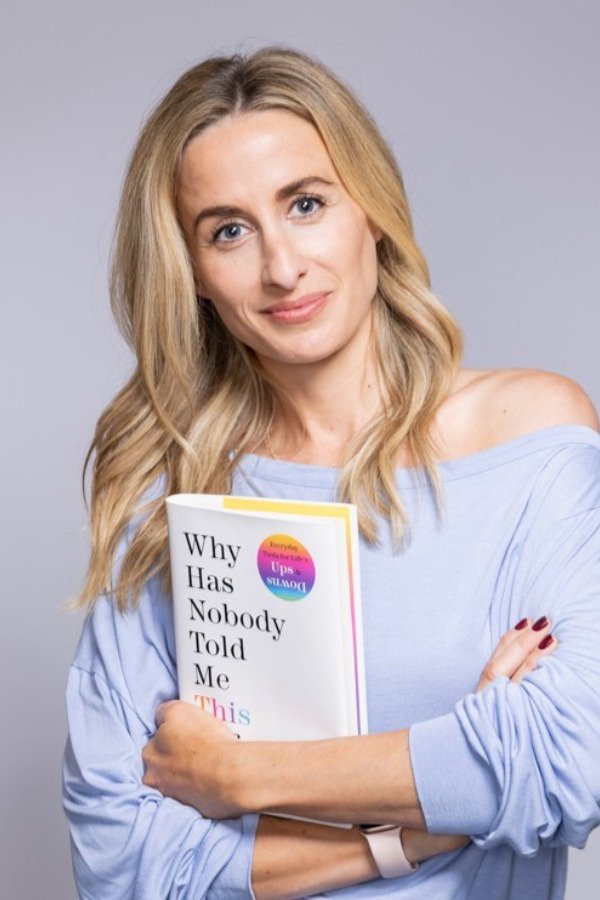6 Best Self-Help Tips from Why has nobody told Me this before? A Book worth reading
Manasvi Gada
July 12, 2023. 4 minute Read

"
In this article, I review the book that delivers specific life-learning tools and mental health concepts that I acquired and resonated with as a reader.
The goal is to spread awareness about specific issues highlighted in this book.
- Table of Content
- Overview of the Book
- 6 Best Self-Help Tips from Why has nobody told Me this before
- Thoughts and Emotions as two different Constructs
- Change your perspective with Failure
- Making Big life changes
- The tasks of Mourning
- Build confidence, go where you have not
- Working out on Values that matter to you
- Final Thoughts
Overview of the Book
I had the opportunity to read this book by the renowned clinical psychologist, Dr. Julie Smith. Representing the years of her experience as a clinical psychologist, she provides the skills one needs to navigate daily life challenges and take accountability for one’s emotional and mental health.
Dr. Julie Smith passed on her insights about what science says and what has worked for other people who have been practising the tools that she suggested to her clients.
The therapeutic tools that she taught in therapy are not therapy skills but they are valuable life skills. Therapeutic Tools can help every individual navigate through difficult times and flourish.
The life skills that she mentioned in the book are so insightful and easy to adapt.
In the book, “Why has Nobody told me this before?” The author tackles the often-taboo subjects of mental health with empathy, insight as well as providing readers with her practical advice. The author also includes her personal experiences that provide valuable information about her journey as a clinical psychologist.
The author, Dr. Julie Smith delves deep into subjects like understanding low mood, How to turn bad days into better days, understanding motivation and how to make big life changes.
What I really like about this book is the authenticity with which the author has explained the deep-rooted subject of emotional pain and grief.
Everyone at least once in their lifetime has experienced grief and unimaginable emotional pain, and nobody really talks about how to deal with it, however, this book is a credible guide to understand the complexity of such sensitive topics.
The book emphasises actionable tips to overcome stress and things we can do to calm our anxiety during difficult situations.
Few great things about the book’s author are
- Ability to interpret relationships
- The key to building confidence
- How to deal with criticism and Disapproval
- Working on creating a life with meaning
This has given me a new perspective on life and intrigued me as a young mental health enthusiast.
So Let’s explore the Life lessons that one can include in their life…
Related Article: Live a Great Life, not a Stressful Life.
6 Best Self-Help Tips from Why has nobody told Me this before
1. Thoughts and Emotions as two different Constructs
Lots of self-help books tell us to get our mindset right but they do not emphasise on the fact that it is a two-way road, the way we feel also influences the type of thoughts that can pop in our head making us more susceptible to experience thoughts that are negative and self-critical.
The author exhibits the various thought biases such as
- catastrophization, (jumping to the worst possible conclusions)
- personalising
- having a mental filter
- Overgeneralization
- Labelling
Which people experience when they are in a low mood, thereby developing self-awareness among the readers.
This book guides us into understanding and separating our thoughts and emotions as two different constructs.
And the book, “Why has Nobody told me this before?” even explore how our behaviour and physical sensations are highly dependent on how we feel and think in our day-to-day life.
"
If you find yourself in deep water in the dark, with no way of telling which direction leads to safety, what you do is that if you don’t choose a direction and start moving, you won’t be able to keep your head above the surface for long.
Dr. Julie Smith
Related Article: 9 Ways How you can Embrace Positive Thinking

2. Change your perspective with Failure
We all go through failures and that automatically downgrades our motivation towards that particular situation.
The author quotes, “We often slip up and go off track by engaging in this vicious self-attack and relentless self-criticism, we are likely to feel ashamed and defeated.”
When we fail we often associate it with a feeling of unworthiness and tend to procrastinate into starting something new.
The author highlights developing self-compassion, which means treating oneself with kindness, respect, honesty and encouragement after a failure which is linked to increased motivation and better outcomes.

3. Making Big life changes
There is a moment in our life when we realise that a change is required, we are aware of that fact but we can’t really make one. Change is often discomforting and straining and therefore, people often can’t change.
The author Dr. Julie Smith includes the use of metacognition, as complex as this term sounds, it literally means the ability to be accountable to ourselves.
Change is possible only when we build awareness about ourselves by looking back at our actions and behaviours.
She believes that journaling helps one to build an ability to reflect on one’s experiences and how one responded to them.
Related Article: 13 Ways to Living Life to the Fullest.

4. The tasks of Mourning
Grief is seen as a confusing, chaotic and rather an intense experience for any human. Everyone deals with grief differently, some feel the pain and emotions and others try their best to distract themselves from feeling anything.
This book provides various tasks that could be adapted to go through the grief period. Tasks like taking small steps every day, expressing emotions, growing around the wound and most essentially when to seek professional help.
The author Dr. Julie Smith quotes,

5. Build confidence, go where you have not
The key to building confidence is the willingness to let fear be present as we do the things that matter to us.
We feel a lack of confidence when we see other people are better than us or when we are put into some uncomfortable situation. Someone who has never given a speech in front of thousands of people might feel a lack of confidence when he is asked to do that.
Dr. Julie Smith includes the “ Overleaf “, ( Luckner & Nadler, 1991) This is a learning model that can be used as a guide for building confidence.
The “Overleaf” model is something that I adapted to after reading this book. It keeps one aware of where I stand and what I need to do to build their confidence.
6. Working out on Values that matter to you
Values are a set of ideas about how you want to live your life, the kind of person you want to be and the principles you want to stand for. They guide your vision and meaning of life.
The author has mentioned simple exercises to get clarity on your values as they are today. It’s worth knowing the values that you live by, depending on your stage in life.
Dr. Smith developed her own adaptation of the “value star” designed by a Swedish Therapist. This tool offers a bird-eye view of competing priorities in our lives. It is a great tool to map our values to take appropriate action.
Final Thoughts
In conclusion, this book is a valuable resource that offers personal anecdotes and destigmatizes various sensitive topics of mental health.
The author’s conversational style of writing and empathetic approach makes it all the more interesting and encourages self-reflection and personal growth.
Subscribe to new post
In this article, we will explore the importance of post-exercise recovery, its physiological and psychological benefits, and provide practical tips to optimize your recovery routine.
The One Liner
Useful Links
Order Related Queries
Useful Links
Order Related Queries


